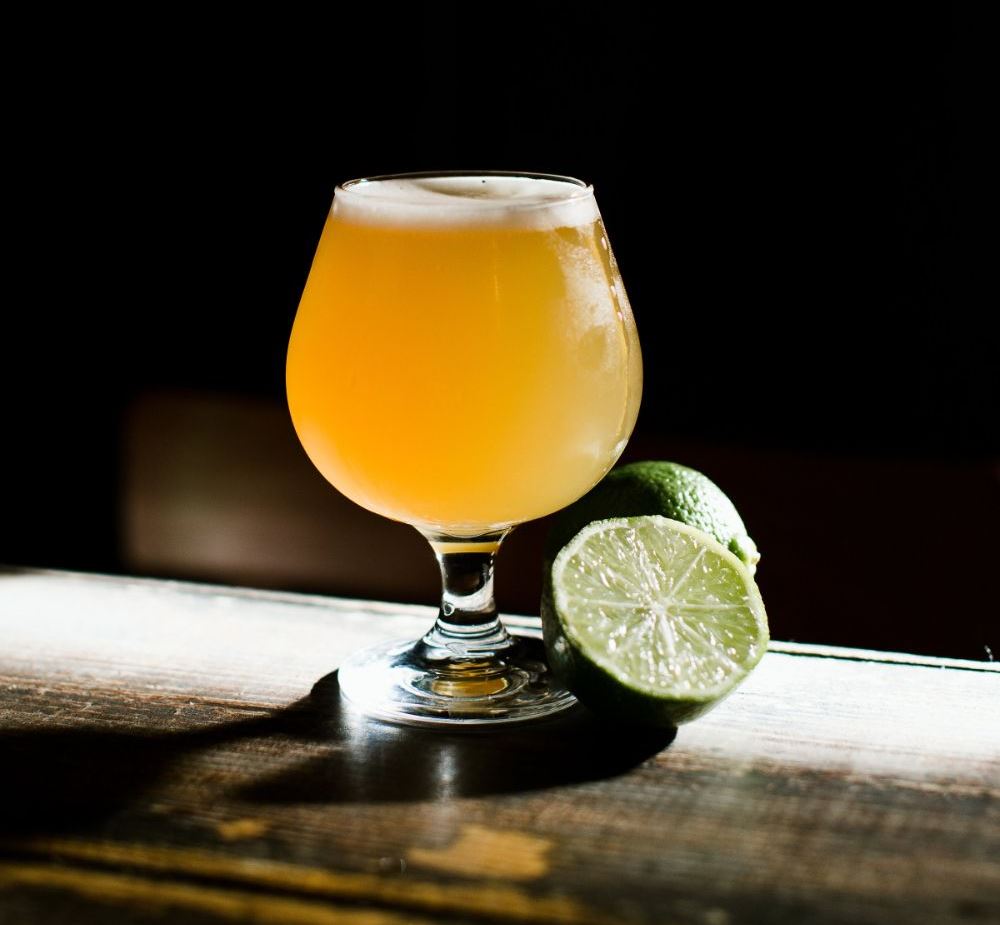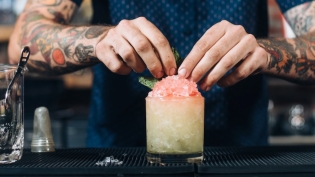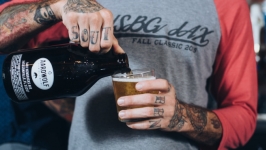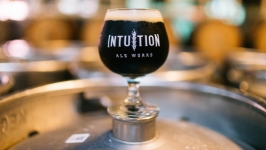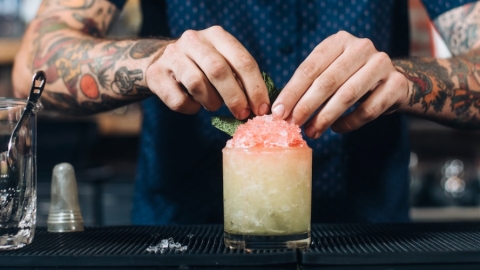A Little Sip of Sunshine
It’s hard to think of an ingredient more iconically Floridian than the noble citrus fruit. Although oranges tend to dominate the commercial spotlight, sharing the bulk of the state’s citrus production with grapefruit and tangerines, lemons and limes have a loyal fan base as well. With citrus fruit’s pure embodiment of liquid sunshine, distinctive acidity and refreshing nature, it comes as no surprise that many of Florida’s craft brewers are incorporating citrus, in all its forms, into their recipes.
Engine 15 in Jacksonville currently brews three such beers. Their Orange Cream Ale, a year-round offering that blends the classically smooth style with 100% Florida orange juice, is one of its best sellers. During the hot summer months the brewery makes a refreshing, sessionable Lemon Shandy that combines housemade lemonade with their signature J-Ville Lager. And for their latest foray, fresh lime juice is added to their slightly tart and salty gose, a beer whose immediate success in the taproom can be attributed to years of perfecting the art of blending fresh citrus juice with craft beer.
“We were able to draw from our past experience to be able to package it and feel confident about it right out of the gate,” says owner and brewmaster Luciano Scremin.
Keeping things natural is a point of pride for Scremin, as many brewers rely on extracts to provide a cheap and convenient way to infuse their beers with otherwise natural flavors. They are, after all, scientifically consistent and precise.
“Extracts are interesting things and they certainly have their place,” says Scremin. But regardless of their consistency, he prefers the traditional route. “It’s a natural product, not some chemically extracted essence of that product.”
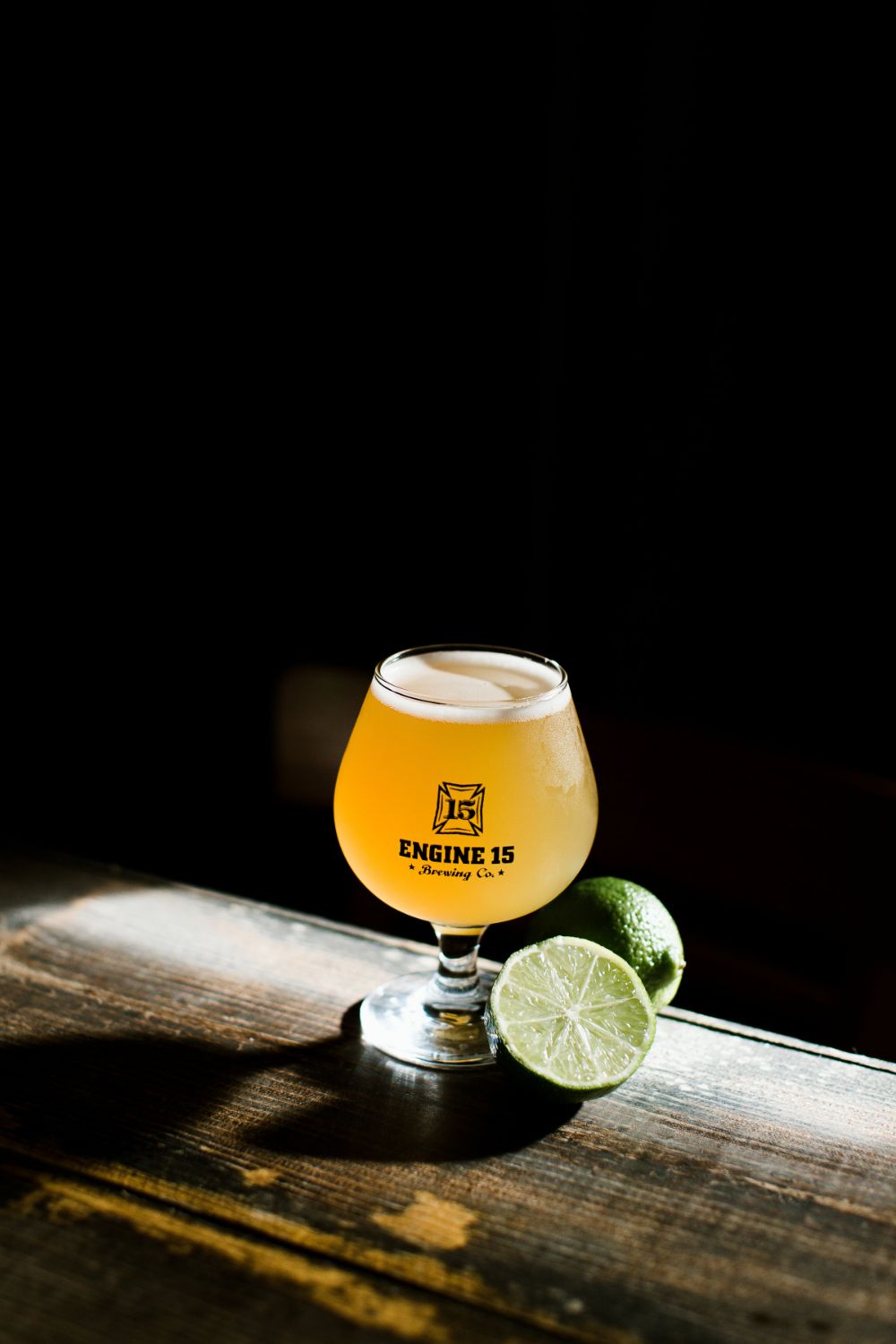
Working with fresh, natural ingredients like citrus is not without its challenges, though. At Engine 15, the biggest complication materialized towards the end of a batch of the Orange Cream Ale. Scremin and his team began noticing higher carbonation levels in the last few kegs, a phenomenon they initially attributed to a secondary fermentation of the additional simple sugars found in the orange juice. After sending samples to a lab for analysis and determining that no re-fermentation was actually occurring after packaging, they speculated as to what might be the source of the problem.
They soon identified pectin, the naturally occurring polysaccharide found in some fruit that is often used as a thickening agent in jams, as the culprit. Lemons and limes contain little to no pectin, which explains why the problem didn’t manifest itself in their other citrus beers.
“It took a while to get the pectins in the juice to play well with the chemistry of the beer,” Scremin says, “but we were able to do it without using anything artificial.” The solution was to simply remove the pectin altogether through the use of specialized enzymes.
Unexpected chemical reactions aside, fresh fruit is anything but consistent and predictable. Sure, they maintain their essential lemon, lime or orange flavors, but myriad environmental variables such as rainfall, temperature, sunlight, etc. play a role in exactly how the harvested fruit tastes, particularly in terms of sweetness, the pivotal factor in how the juice interplays with the beer. When the brewers at Engine 15 blend juice into a finished beer, they take notes on the specific ratios to use as a starting point for the next batch, adjusting concentrations to account for seasonal crop variations in order to maintain consistency.
Florida brewers are fortunate in that citrus is easy to source in the region, the same way brewers in Michigan may work with cherries or in Georgia with peaches. Working with local produce also helps establish an uniquely Floridian sense of identity in beermaking. “It’s something that’s here,” Scremin says. “It sets us apart, it’s delicious and I think it’s awesome.”


